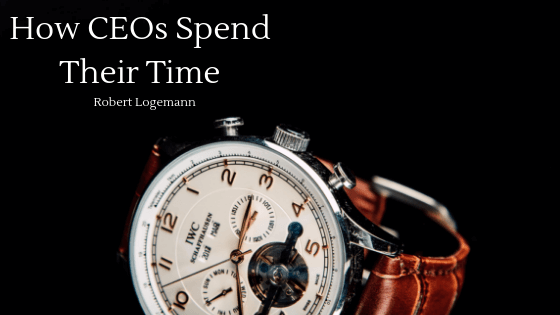As the top-most position in any given company, the CEO often faces excessive demands on their time. The employees that work for them, the board they report to, the bodies that govern them, and the families they come home to all compete for limited attention. Add to this an infinitely increasing task list, and there’s barely enough hours to get it all done. So how do they manage it all?
A study launched in 2006 attempted to detail precisely how CEOs spend their time. Researchers followed 27 CEOs for three months each, accumulating more than 60,000 hours of data. Here is what they found.
Work Week
CEOs spend approximately 9.7 hours per weekday working. That equates to 48.5 hours of work between Monday and Friday. Then, because demands on their time are so high, they spend roughly 3.9 hours per day working on the weekend, bringing the total number of hours worked per week to 56.3. Most participants also spent at least 2 hours working on 70% of their vacation days.
Delving a bit further, the study posits that about 47% of CEO work is done at the office. The nature of running a company, be it domestic or global, is that you need to oversee all aspects of the business regardless of location. This means that we must take into account commuting, work-related travel, external meetings, pop-up conversations, and other unexpected events. The CEOs in the study worked an average of 62.5 hours per week once all was said and done. That’s just under 3 “work days” more than the standard American work week.
During their working hours, you can expect to find CEOs managing their time in predictable yet effective ways. They prefer to conduct business face-to-face and struggle to avoid the black hole that is e-mail correspondence. They maintain detailed personal agendas and update them regularly in response to current events— study participants spent roughly 36% of their time reacting to unfolding situations and 72% of work time in meetings. Only 11% of a CEOs time is spent on regular, routine activities.
Home Life
To maintain peak performance during the long work hours, it is essential that CEOs closely manage their health just as a professional athlete would. Adequate amounts of exercise and sleep are crucial to their success. The CEOs participating in the 2006 study slept an average of 6.9 hours per night and allotted roughly “9% of their nonwork hours (or about 45 minutes a day)” to exercise regimens. Their remaining time, approximately 6 hours per day, is reserved for personal activities like spending time with family and engaging in personal hobbies.
It is important to note that the statistics quoted in this study are now over 10 years old and the number of hours in a modern work week has only increased with time. As the business world evolves, 70-80 hours per week is not only common but it is almost expected as the new status quo for CEOs.
The way a CEO spends his or her time directly impacts both their company and their personal life. If managed incorrectly, it could render catastrophic results in either category. By analyzing and understanding a “typical” CEO schedule, we can start to develop best practices with the intent of preserving the health and prosperity of our CEOs and the companies they run.




